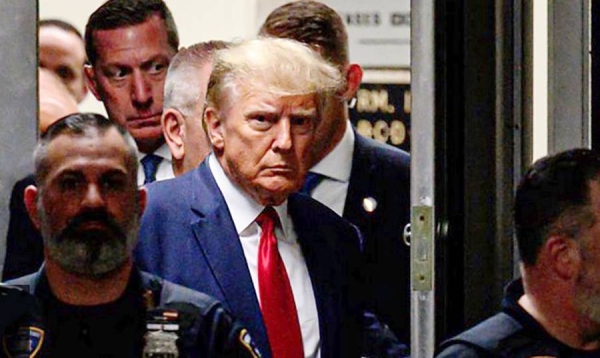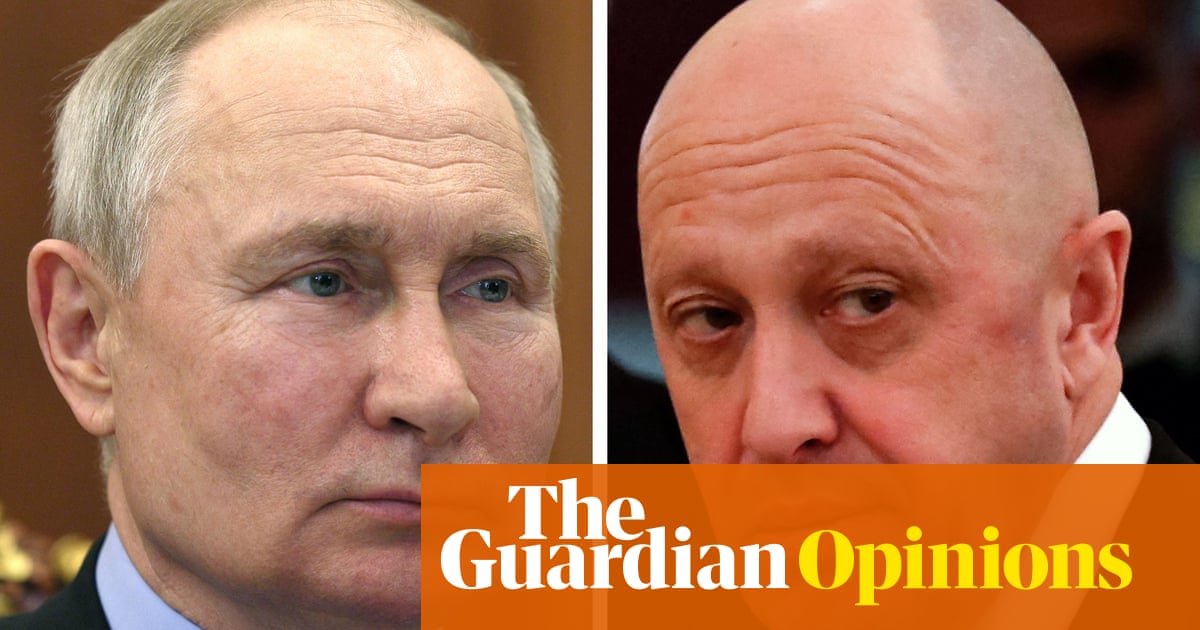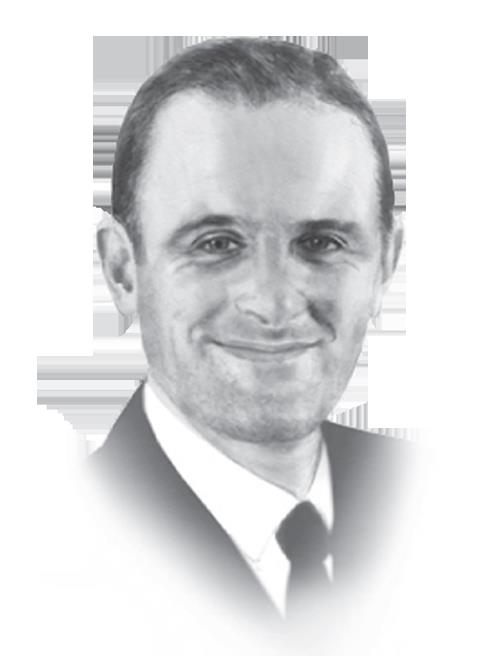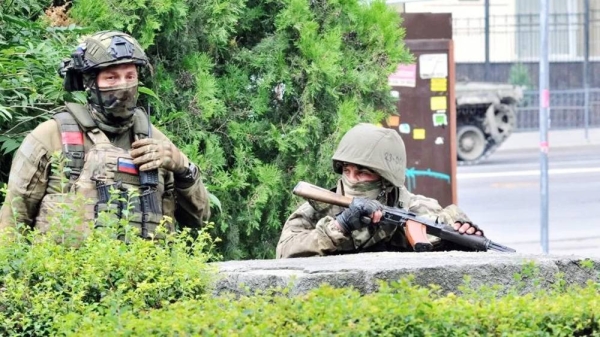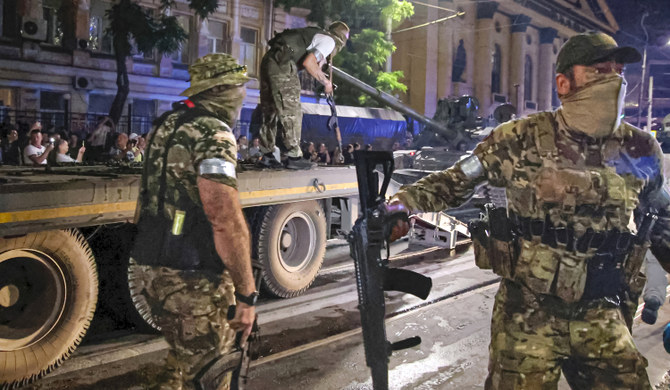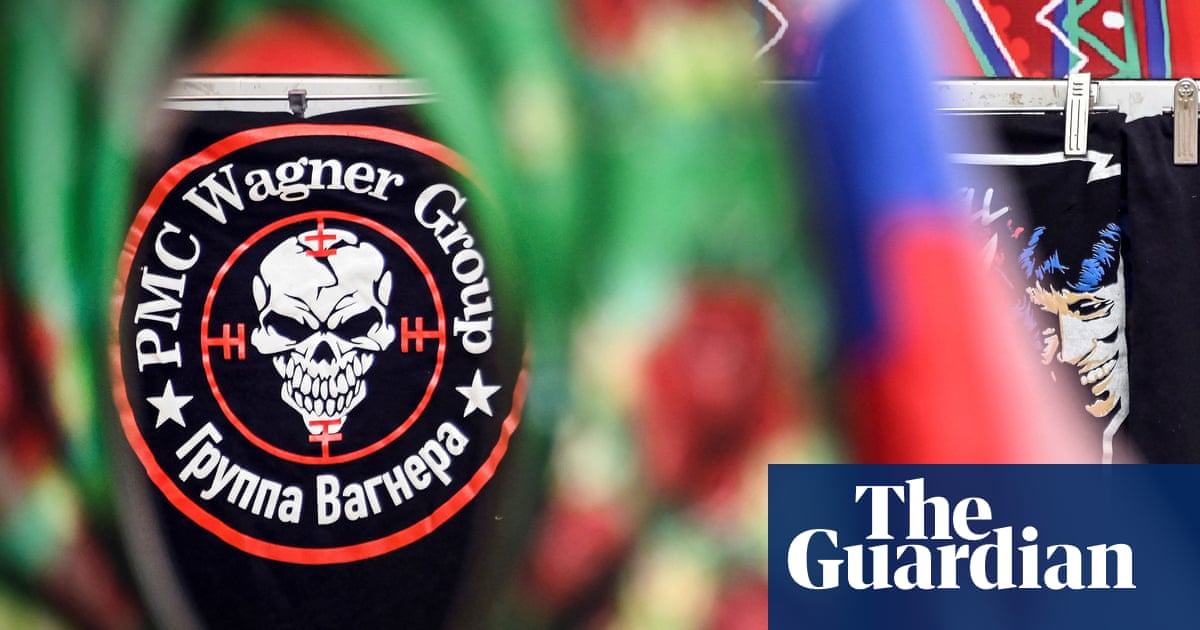
As Vladimir Putin responded with ire and defiance to Yevgeny Prigozhin’s uprising, later halted by the Wagner chief to avoid “Russian bloodshed”, world leaders closely watched the biggest challenge yet to the Russian president’s decades-spanning rule.
Ukraine
President Volodymyr Zelenskiy said: “Russia’s weakness is obvious. Full-scale weakness. And the longer Russia keeps its troops and mercenaries on our land, the more chaos, pain and problems it will have for itself later.”
On the battlefield, his deputy defence minister Ganna Malyar called the mutiny a “window of opportunity”.
US
Joe Biden has been briefed on the situation in Russia, national security council spokesperson Adam Hodge said, adding that the US president “will be consulting with allies and partners on these developments”.
Nato
A spokesperson for Nato, Oana Lungescu, said the alliance was “monitoring the situation”.
UK
The British prime minister, Rishi Sunak, called an emergency Cobra meeting and urged “all parties to be responsible and to protect civilians”.
“We’re in touch with our allies as the situation evolves. I’ll be speaking to some of them later today and the most important thing is for all parties to behave responsibly,” he said.
James Cleverly, the foreign secretary, said: “We are monitoring the situation carefully,” and urged British citizens to continue to follow FCDO travel advice.
In its daily intelligence update, the Ministry of Defence said on Saturday: “Over the coming hours, the loyalty of Russia’s security forces, and especially the Russian national guard, will be key to how the crisis plays out. This represents the most significant challenge to the Russian state in recent times.”
Europe
Charles Michel, the president of the European Council, said he was “closely monitoring the situation in Russia as it unfolds” and in contact with European leaders and G7 partners. “This is clearly an internal Russian issue,” he said, adding that the council’s support for Ukraine and Zelenskiy is “unwavering”.
Josep Borrell Fontelles, the high representative of the EU for foreign affairs and security policy, said he had been on a call with G7 foreign ministers to “exchange views on the situation in Russia”.
He added: “Ahead of Monday’s EU foreign affairs council, I am coordinating inside the European Union and have activated the crisis response centre. Our support to Ukraine continues unabated.”
Turkey
President Tayyip Erdoğan spoke with Putin by telephone on Saturday and urged him to act with common sense, the Turkish presidency said.
The Turkish presidency said: “It was stressed during the call that no one should take it upon themselves to take action in the face of the situation in Russia.”
Czech Republic
“I can see my summer holiday in Crimea is approaching,” said the foreign minister, Jan Lipavský.
Austria
Chancellor Karl Nehammer, who has met Putin since his invasion of Ukraine, said: “The operations of the Russian Federations are always of the utmost importance, because the Russian Federation has a great potential for biological, chemical and nuclear weapons.”
Germany
The foreign minister, Annalena Baerbock, said the government was “observing developments in Russia very closely” and was in “close contact” with international partners.
France
The Élysée said President Emmanuel Macron was “monitoring the situation closely”. “We remain focused on supporting Ukraine,” a spokesperson added.
Poland
President Andrzej Duda said he held consultations on Saturday morning with the prime minister, the ministry of national defence and with allies. “The course of events beyond our eastern border is monitored on an ongoing basis,” he added.
Belarus
Putin ally Alexander Lukashenko, the Belarus president, spoke to the Russian president on the phone on Saturday morning, according to the state-owned press service BelTA.
Italy
The office of Giorgia Meloni, the Italian prime minister, said the events “show how the aggression against Ukraine is causing instability also within Russia”.
Belgium
Ludivine Dedonder, the Belgian defence minister, said the situation was “serious” and she was watching to see “what impact it has on the conflict”.
Finland
The new prime minister, Petteri Orpo, said he had spoken with the Estonian and Latvian prime ministers about Russia. “We agreed on close cooperation,” he added.
Sweden
Prime minister Ulf Kristersson said he was following developments in Russia closely. He said he would be meeting other Nordic leaders on Sunday morning.
Norway
Foreign minister Anniken Huitfeldt said Oslo was “closely following the dramatic situation in Russia and … in close contact with the embassy in Moscow”.
Estonia
Estonia’s prime minister, Kaja Kallas, said she was following developments closely and sharing information with allies. “Border security has been strengthened. I also urge our people not to travel to any part of Russia,” she said.






